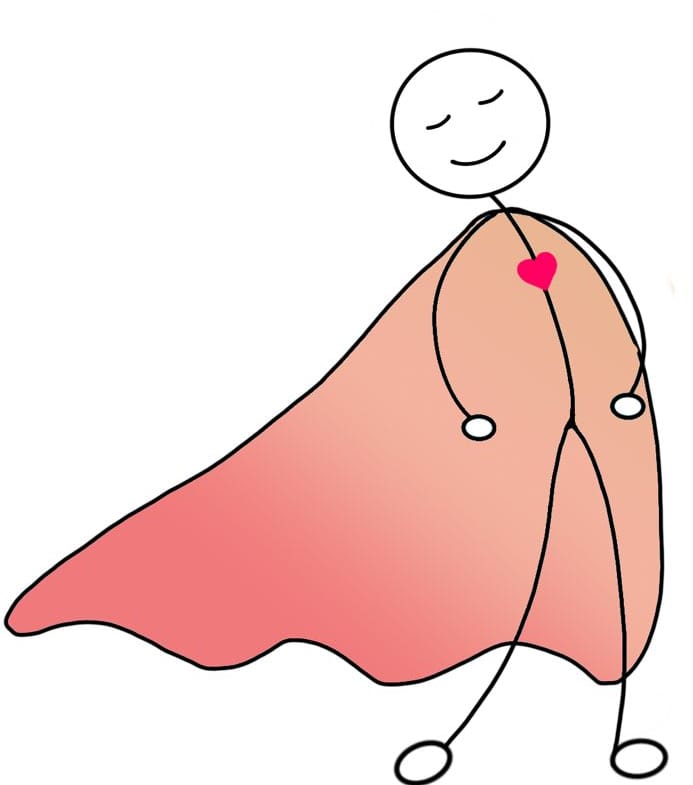From Abuse in Power to Power Away from Abuse

Warning: This post touches upon themes surrounding Domestic Violence and Abuse.
In 2014, I left my family home with my two children and headed to a women's refuge for 18 months. At the time, many people asked me: would I go back? Don’t you believe in second chances? Can a leopard really change its spots?
Understanding Domestic Violence
Domestic violence is a pattern of behaviour used by one person to gain and maintain power and control over another in an intimate or familial relationship. It can take many forms, including physical, emotional, psychological, sexual, and financial abuse, as well as controlling and coercive behaviour. Domestic violence affects people of all genders, ages, and backgrounds, and its impact can be devastating and long-lasting.
Living in a Refuge: Hardships and Triumphs
Leaving home to stay in a refuge came with its own set of challenges that could easily deter someone from staying and fighting. The emotional and physical toll of uprooting my life, coupled with the uncertainty of the future, was daunting. The refuge was often crowded, resources were stretched thin, and privacy was a luxury. Adjusting to a new environment while managing the trauma of past abuse required immense strength and resilience. Despite these hardships, staying in the refuge was ultimately worth it. It provided a safe space to rebuild my life, gain independence, and start healing. The support network I found there was invaluable, offering encouragement and practical assistance that helped me and my children move forward.
Can People Change?
Truth be told, I believe everyone is capable of change, and we should learn to forgive and move on; however, effort and the need to change is required. A friend once told me that people come into our lives either to teach us something or to help us. This resonates deeply with me.
The Impact of Past Experiences
Past experiences teach us valuable lessons. If something is meant to be part of our present, it will naturally merge into it. Forcing things often means missing the underlying lesson. Carrying past hurts like luggage can hinder future plans and desires.
People who view themselves as unlucky or less fortunate often remain trapped in that mindset. Their subconscious constantly reminds them of past hurts, perpetuating a cycle of negativity. Immersing oneself in positivity can lead to significant improvements in self-perception and attraction from others.
Abuse and the Legal System
Perpetrators of extremely abusive behaviour may also change, but this requires them to acknowledge their faults. Domestic Violence Intervention Programmes exist, often mandated by courts. However, these programmes can fall short in offering long-term protection for victims. After completing the programme, abusers may return home, leaving women in a state of fear.
The cost-effectiveness of these programmes is often prioritised over the safety of victims. For instance, it costs £6,000 for a programme versus £50,000 annually for imprisonment. Yet, this leaves women vulnerable once the order expires. Effective long-term strategies are needed to protect women and prevent further harm.
Changes Since 2015
Since 2015, there have been significant changes in the laws concerning domestic violence and abuse. The definition of domestic abuse has been expanded to include controlling and coercive behaviour, providing better protection for victims. There has been a notable increase in advocacy and public awareness, with high-profile figures like Mel B of the Spice Girls speaking out about their own experiences. These changes have contributed to a more supportive environment for survivors and a stronger societal stance against all forms of domestic abuse.
UK Says No More Campaign
I was privileged to speak at the parliamentary launch of the UK Says No More Abuse campaign. This campaign has significantly increased awareness and advocacy against domestic abuse, leading to the creation of more safe spaces for people to turn to. The availability of these safe spaces has provided much-needed refuge and support for those affected by abuse, demonstrating the power of collective action in making a real difference.
Increase in Violence Since COVID-19
The COVID-19 pandemic has sadly led to an increase in domestic violence. Lockdowns and restrictions have trapped many victims at home with their abusers, exacerbating the risk and frequency of violence. Support services have reported a surge in calls for help, highlighting the urgent need for enhanced protection and resources for those in abusive situations. The pandemic has underscored the importance of robust support systems and the need for continuous efforts to combat domestic violence.
Budget Restrictions and Government Action
Under Conservative leadership, parliamentary budget restrictions have impacted the funding available for domestic violence support services. These financial constraints have made it challenging to provide comprehensive and sustained support for victims. It is my hope that the new government will address these budgetary limitations and prioritise increased funding for domestic abuse programmes and services. Ensuring that adequate resources are allocated to support victims is crucial in the fight against domestic violence. Equally, I hope when they do imprison someone for these crimes of Domestic Violence, they serve the sentence they are given.
Empowering Women
Instead of merely sending abusers to programmes, should we focus on empowering women? Investing in their strengths and resilience could provide long-term benefits. Self-help programmes like the Freedom Programme and Talking Without Fear aim to educate women about abuse and recovery. However, post-programme support is crucial to ensure lasting change.
Empowerment Workshops for Survivors
To further support survivors, I founded an award-winning empowerment workshop that catered to children and women who have experienced domestic violence. Witnessing firsthand the struggles and the sheer number of women suffering from abuse was heartbreaking. However, I was immensely proud to have created a safe space where we could all come together and heal. Through art, games, and open conversations, these workshops allowed participants to express their emotions, share their stories, and support one another. The workshops created a sense of community and empowerment, helping many to find their strength and voice again.
Education and Prevention
Educating young people about healthy relationships and the realities of abuse is essential. Unfortunately, recent rulings against compulsory education on these topics hinder progress. Teaching children about emotions and relationships can prevent future abuse and promote healthier interactions.
Seeking Support
If you or someone you know is experiencing domestic abuse or violence, it is crucial to seek help. Contact your GP, local council, or domestic abuse support organisations for assistance. There are resources available to provide support and ensure safety. Remember, you do not have to face this alone.
Conclusion
Women must realise they do not deserve to live in fear. Achieving their full potential requires breaking free from abusive cycles. We all have one life, and it’s essential to make the most of it, free from the shadows of past hurts. Change is possible, but it requires collective effort and support from society.






